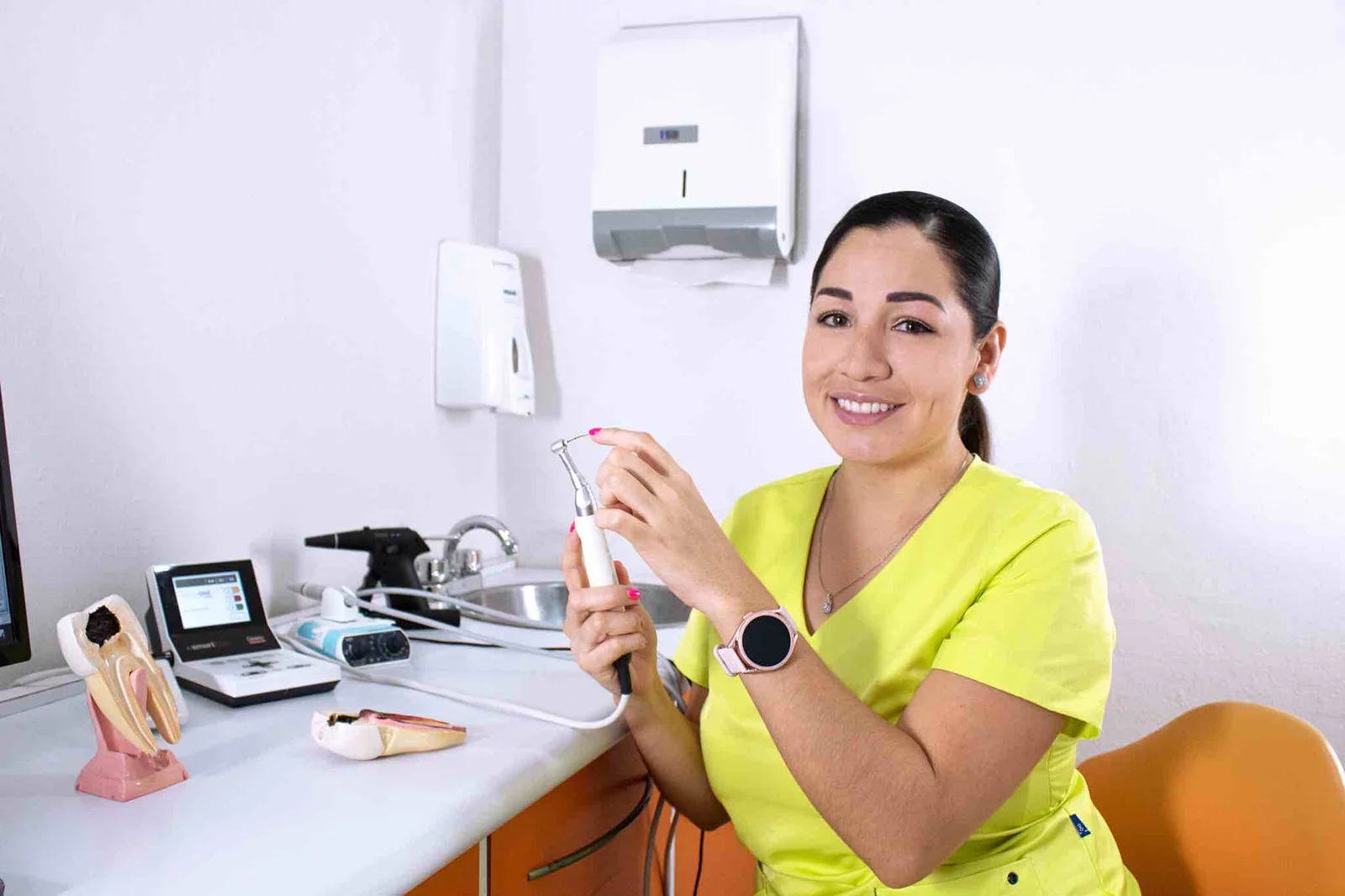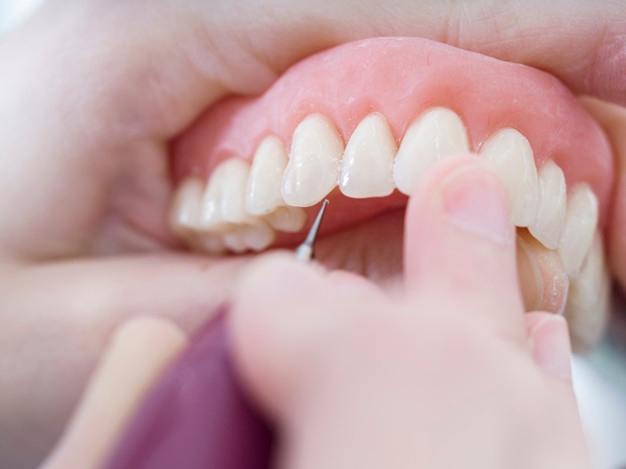
Root Canal Treatment in Mexico: Your Guide to Choosing the Best Endodontist in Mexico
What is the specialism known as endodontics?
Endodontics is a branch of dentistry concerned with etiology, diagnosis, prevention and treatment of illnesses affecting the tooth pulp (nerves) as well as the tissues adjacent to the tooth in question.

Endodontics (commonly known as “killing the nerve”) also called root canal treatment is a necessary procedure to keep a tooth in the mouth functional and free of symptoms.
It consists of making a cavity in the center of the tooth to eliminate the tooth pulp (nerve) using mechanized instruments and disinfect the tooth from the inside using different disinfectants. Once this has been done, it is hermetically sealed through a filling made of regenerative materials.
The main advantage of having this treatment is preserving the tooth in the mouth, meaning that in the majority of cases, this treatment avoids having to have teeth extracted.
Another benefit is that through this treatment the endodontist can alleviate patients’ pain, the main reason why patients make an appointment with the dentist.
How to choose an Endodontist:
Considering this is a complex treatment, it is important to consult a specialist in endodontics (endodontist) to ensure the best treatment results.
The endodontist entrusted with the treatment should:
- Be properly trained: have studied a Masters or further degree in the area and additionally only be practicing in this area. This will allow them to carry out treatments effectively and efficiently.
- Use the best materials to carry out treatment: for example excellent radiology equipment (x-ray machine, tomograph, scanner), apical electronic locators, motors to activate nickel-titanium files with thermal treatments (very flexible instruments), ultrasound to carry out selective studies of wear and activate disinfectant solutions inside the tooth, as well as a thermo-plastic filling system to ensure a hermetic seal of the tooth and avoid bacterial recontamination. It is also important to mention that these instruments should be from recognized market brands, seeing as different studies have proved that their use contributes to carrying out quality treatments more quickly.
- Be forward-thinking and offer care to their patients: The time and care dedicated by an endodontist to their patients is very important. They should clearly explain the procedure to be followed and clear up any doubts or worries the patient has. All this compared to other low cost or community clinics which are only just starting to pay attention to these kind of details.
When is it necessary to have a root canal treatment?
It is recommended when there are very deep tooth cavities which are close to the dental nerve and cause inflammation or necrosis (death) of the same. In addition it is recommended in cases of traumatism (when the teeth are hit), endo-periodontal lesions (problems associated with the gums), very strong orthodontic movements and prosthetic indications.
What is a root canal treatment for?
It is the only way to save a tooth once its nerve has been affected by one of the conditions mentioned above.

Does it hurt when it is done?
The treatment does not usually hurt because it is carried out under local anesthetic. In addition, at Salud Oral, we have a conscious sedation machine which allows us to keep the patient relaxed and carry out treatments effectively and efficiently.
Can I still have a root canal treatment when I am in a lot of pain and my face is swollen?
In fact a root canal treatment is the recommended treatment to resolve tooth abscess. In these cases it is necessary to carry out an internal tooth cleaning and take medicines that the endodondist considers relevant to the case
How many times do I have to go to the clinic to have a root canal treatment?
That depends entirely on the diagnosis of the tooth pulp (what state the nerve is in). Just as it can be done in one session, there are some cases that need up to 3 sessions.

Are root canal treatment successful?
Based on studies, the success rate is about 95% of teeth where the tooth pulp is living and 85% where there is pulpal necrosis (dead nerves). It is therefore a very reliable treatment, even though as with any medical treatment, there is a proportion of cases that cannot be resolved and for which an alternative treatment needs to be found.
Are teeth more fragile after a root canal treatment?
Any dental treatment produces an increase in fragility of a healthy tooth, that is why it is recommended that after a root canal treatment the treated tooth be reconstructed using a Crown and in some cases putting in root reinforcement. That will all depend on what the prosthesis specialist decides in each case.
What symptoms indicate that I might need a root canal treatment?
Very different symptoms can appear, depending on the type and seriousness of the dental pulp (nerve) illness. Generally teeth become sensitive when ingesting cold or hot liquids; or when eating sweet or sour foods. Spontaneous pain can present itself. There can also be pain while biting or chewing; inflammation of the face; teeth that begin to change color; or pain that affects certain teeth. Nonetheless, each person may experience different symptoms. That is why it is necessary to go to an endodontist to carry out a proper diagnosis.
What can go wrong during a root canal treatment?
Even though the endodontist carrying out the treatment is a specialist, there are cases when in spite of following all protocols, treatments can fail. This is due to virulent bacteria being present inside the tooth where our instruments cannot enter and therefore disinfection is not 100%. Even though the endodontist carries out treatment very carefully, during the elimination of tooth pulp (nerve) using rotary instruments, these can break inside the tooth, making successful treatment less likely. After finishing the treatment infection can persist in tissues adjacent to the tooth and tooth ache can reappear, in which case the endodontist could offer alternative treatment before extracting the tooth. These alternatives are: dental apicoectomy or intentional re-implant.

C.D.E.E. Alejandra Zúñiga Navarro
Specialist in endodontics. Universidad Tecnológica de México